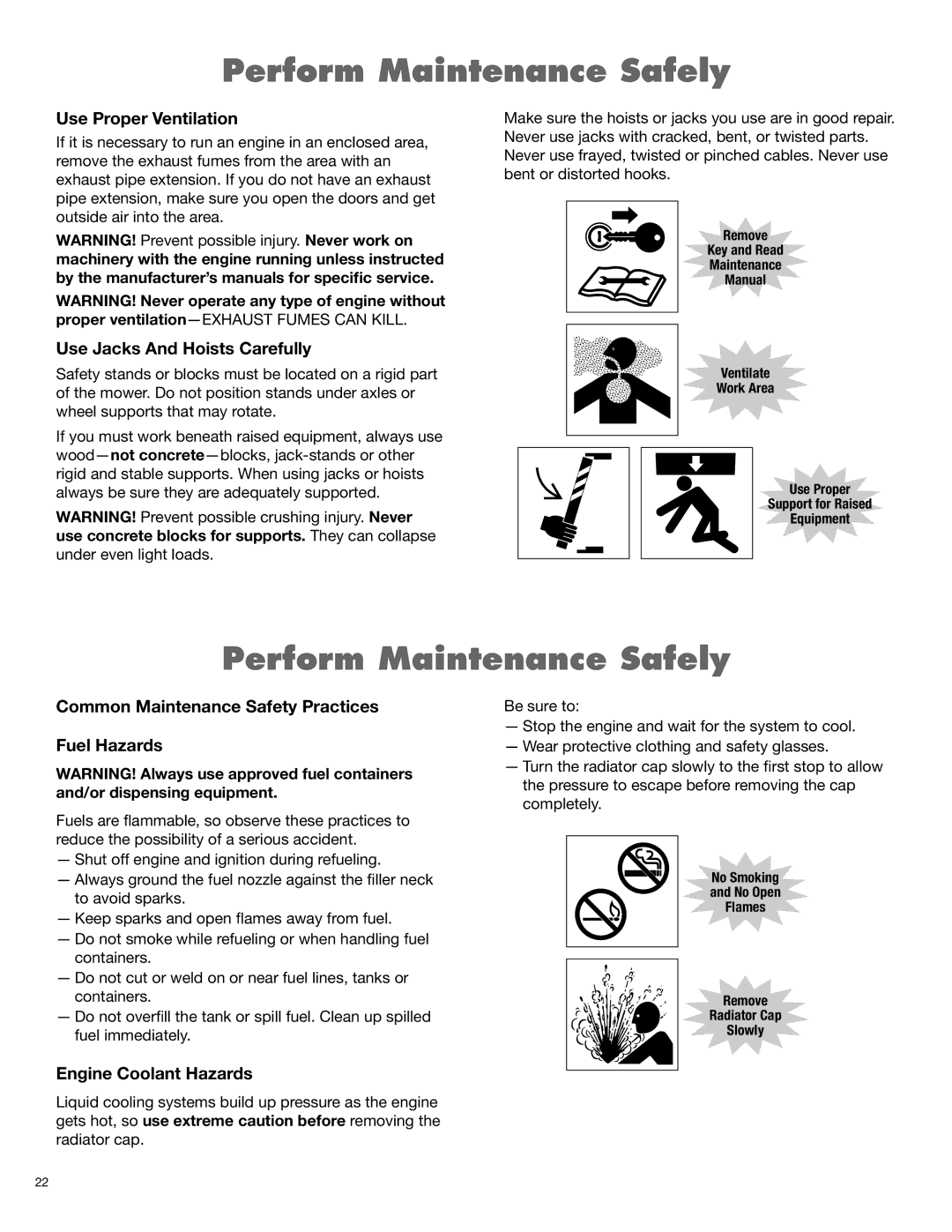
Perform Maintenance Safely
Use Proper Ventilation
If it is necessary to run an engine in an enclosed area, remove the exhaust fumes from the area with an exhaust pipe extension. If you do not have an exhaust pipe extension, make sure you open the doors and get outside air into the area.
WARNING! Prevent possible injury. Never work on machinery with the engine running unless instructed by the manufacturer’s manuals for specific service.
WARNING! Never operate any type of engine without proper
Use Jacks And Hoists Carefully
Safety stands or blocks must be located on a rigid part of the mower. Do not position stands under axles or wheel supports that may rotate.
If you must work beneath raised equipment, always use
WARNING! Prevent possible crushing injury. Never use concrete blocks for supports. They can collapse under even light loads.
Make sure the hoists or jacks you use are in good repair. Never use jacks with cracked, bent, or twisted parts. Never use frayed, twisted or pinched cables. Never use bent or distorted hooks.
Remove
Key and Read
Maintenance
Manual
Ventilate
Work Area
Use Proper
Support for Raised
Equipment
Perform Maintenance Safely
Common Maintenance Safety Practices
Fuel Hazards
WARNING! Always use approved fuel containers and/or dispensing equipment.
Fuels are flammable, so observe these practices to reduce the possibility of a serious accident.
—Shut off engine and ignition during refueling.
—Always ground the fuel nozzle against the filler neck to avoid sparks.
—Keep sparks and open flames away from fuel.
—Do not smoke while refueling or when handling fuel containers.
—Do not cut or weld on or near fuel lines, tanks or containers.
—Do not overfill the tank or spill fuel. Clean up spilled fuel immediately.
Engine Coolant Hazards
Liquid cooling systems build up pressure as the engine gets hot, so use extreme caution before removing the radiator cap.
Be sure to:
—Stop the engine and wait for the system to cool.
—Wear protective clothing and safety glasses.
—Turn the radiator cap slowly to the first stop to allow the pressure to escape before removing the cap completely.
No Smoking
and No Open
Flames
Remove
Radiator Cap
Slowly
22
